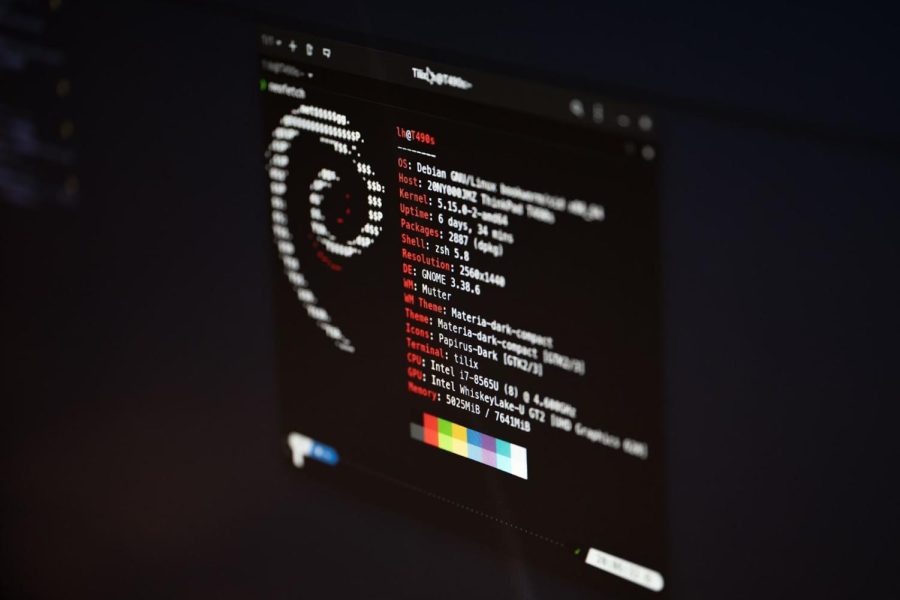Making the switch: The benefits of open-source software
A Neofetch window showing system information of a computer with Debian installed, a well-known Linux distribution.
October 27, 2022
If you’re acquainted with modern technology, you’ve likely become accustomed to the typical handful of programs and computers: Microsoft Windows, Chromebook, Mac etc. Still, it may surprise you to see everything hiding beneath the surface of these programs, and the unfortunate inability to adjust them to your liking. This is the downside of proprietary, or closed-source software.
The licenses and regulations implemented by companies on how their property is used can prevent users from optimizing software and benefiting their online security. Fortunately, there is a solution to this problem: switching to open source software! Unlike proprietary software, open source software is free to be customized to one’s liking. A user can add or remove any features that they please, and can even redistribute, or “fork,” their modified versions.
Open-source projects can vary in size from rudimentary Python programs to entire operating systems, and with their vast differences in size comes a plethora of reasons to make the switch.
These operating systems are much more lightweight compared to proprietary ones, allowing for improved performance. Closed source operating systems have a handful of applications and pre-installed programs running in the background. Referred to as “bloatware,” it takes a toll on computer processing speed and occupies unnecessary space. While it’s possible to remove these programs, it is difficult.
On the other hand, open-source operating systems, specifically Linux distributions such as Debian and Arch, rely solely on what the user wants to add and modify. Upon install, they appear to be rudimentary command-line interfaces at first, but can be fully customized. These customizations include the application repositories that users install software from (these are usually free and open source by default), and desktop environments that newcomers are used to. It’s like going to a buffet. You get to choose every program you desire instead of having a pre-packaged TV dinner of proprietary and pre-installed software.
In addition to their boosted performance, open source programs bolster more privacy and security for users. Proprietary software often collects unnecessary data from its users for targeted advertising. For the privacy-concerned individual, this is obviously a major problem. Nevertheless, with open source software’s free-reign modification policies, users are able to remove any undesirable code or programs in applications that may be used to collect data. In many cases, users have created their own alternative and privacy-friendly clients for proprietary sites and software such as Twitter and YouTube. Further regarding cybersecurity, Linux-based and other open-source operating systems are much less susceptible to malware. The majority of computer viruses are designed to affect Windows PCs, as Windows is the most popular operating system in the world. As a result, Linux distributions and the others are not as big of a target. Though they still face malware threats, antivirus software is available to extinguish any undesirable infections.
Though open source software has its obvious benefits to performance, it is also important in the fact that it encourages user creativity and intelligence. Sure, creating these modifications often takes quite a bit of work, but it’s all the more rewarding when a user is able to customize something by themselves. The learning process is frustrating at first, however, with time people may find themselves creating their own solutions to their technological problems instead of relying on a customer support number; a skill that people should master in order to keep up with the technological times.
An understanding of free and open software is incredibly important to anyone involved in the technological world. Not only does utilizing it have benefits for one’s online privacy and security, but it empowers both users and developers alike to become self-reliant in a rapidly changing digital world.











































































